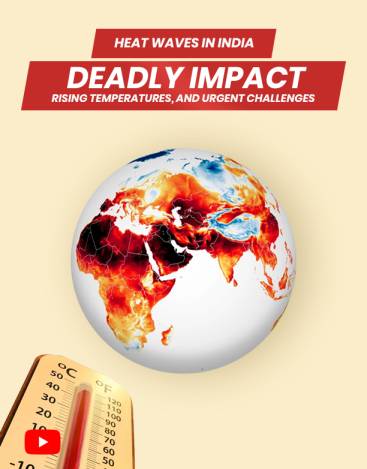Meaning: Global warming refers to the long-term increase in Earth’s average surface temperature due to human activities, primarily the emission of greenhouse gases like carbon dioxide and methane.
Importance: Global warming leads to significant changes in climate patterns, affecting ecosystems, sea levels, and weather events, with profound impacts on biodiversity, human health, and global economies.
Current News: Reports in 2024 highlight that global temperatures continue to rise, with the last decade being the warmest on record. The recent IPCC report underscores the urgency of drastic emission reductions.
Recent Steps Taken: The Paris Agreement remains a cornerstone of global efforts, with many countries updating their Nationally Determined Contributions (NDCs) to reflect more ambitious targets. Renewable energy investments are increasing globally.
Major Challenges: Political and economic resistance, especially from fossil fuel-dependent industries, and the need for large-scale behavioral changes pose significant hurdles. Funding for mitigation and adaptation in developing countries is also insufficient.

